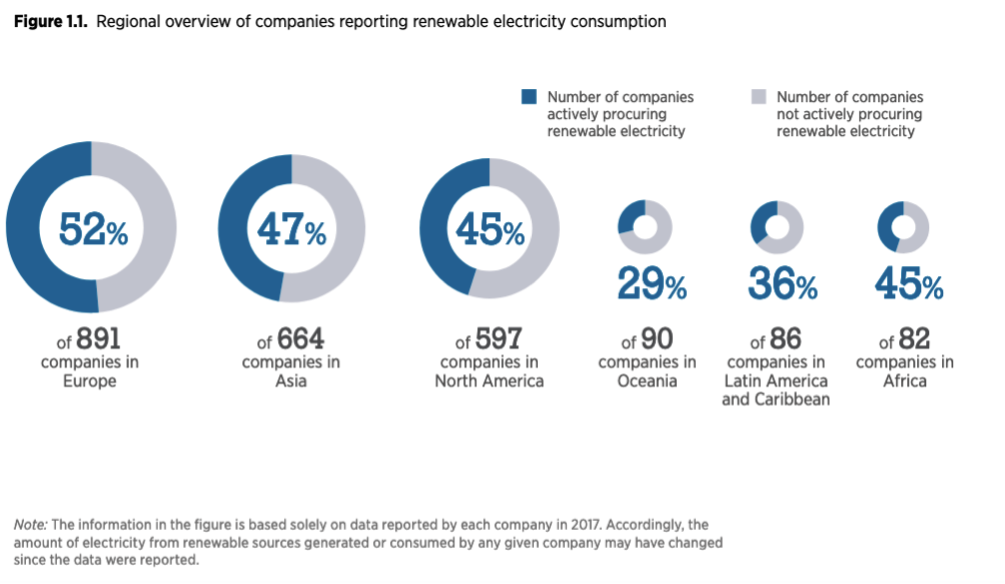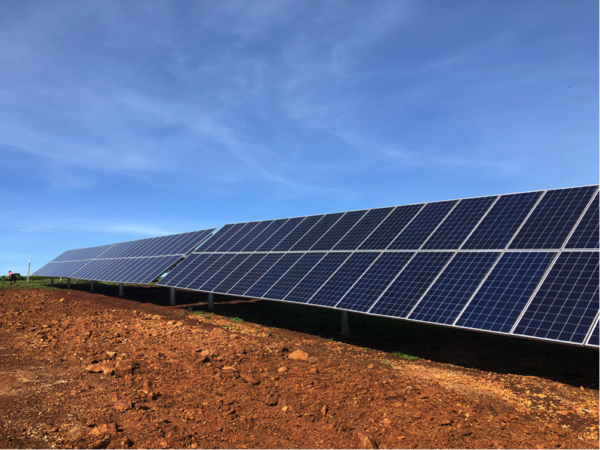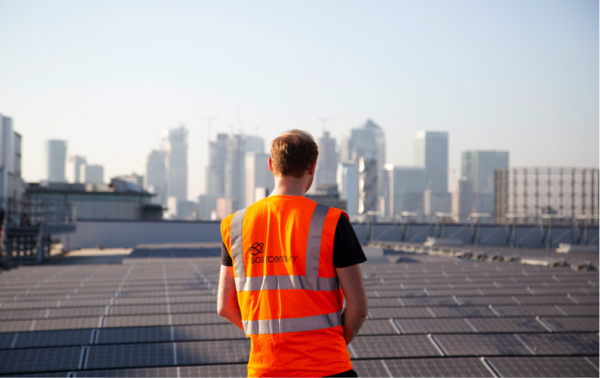But more importantly, perhaps is the fact that this transition to 100% renewables is already happening – and it’s the corporate world that’s leading the charge.
With the economic and social imperatives of addressing climate change increasingly compelling, a growing number of companies are de-risking their operations by shifting away from increasingly volatile fossil fuels, providing hope that this can (and will) become mainstream.
It signals a remarkable turnaround from the early days of the industry, when solar power was out of the question for the majority of corporates. There were the early pioneers, but the case for a ‘people and planet’ approach to business was yet to be formed, let alone won.
In 2019, we’ve seen over 170 companies making the commitment to switch to 100% renewable energy, with 37 already at 95%; so close to meeting their target. From Ikea and Unilever, to Mars and Budweiser, these businesses are some of the world’s most influential companies, all members of the RE100 and 100% committed to a zero carbon future.
Growing the zero carbon economy
On the ground, we’re seeing corporates really forge ahead with Power Purchase Agreements (PPA’s) in particular. This sourcing of renewable electricity is not only positive for CO2 reduction but is having a significant impact on the global economy.
According to IRENA, over 10 million people are now employed in the global renewable energy sector. Corporate commitments to renewable energy are taking this number higher and providing significant new capital injections. Meanwhile, according to Bloomberg NEF, RE100 members alone are investing over $94 billion.
Bloomberg NEF calculates that the RE100 signatories will need to purchase an additional 197TWh of renewable energy in 2030 to reach their 100% targets – which will need to be met with a 100GW of new renewable plants. This demand will drive an investment of around $90 billion into renewable power over the next decade.

Image: IRENA
An emerging zero carbon culture
These front running companies have a zero net carbon philosophy embedded in their culture and are now publicly communicating their transition. This is a newly emerging but important tack for leadership on renewables.
Earlier this year, Budweiser broke new ground by producing its ‘Wind Never Felt Better’ commercial showcased during Super Bowl LIII. Parent company Anheuser-Busch, has set a goal to source all of its purchased electricity from renewable sources by 2025, and even launched a 100% renewable electricity label for Budweiser.

Image: Solarcentury
Unilever: committed to zero carbon
Unilever is one clear poster child of the sustainable business world and aims to be ‘carbon positive’ in its operations by 2030. As a member of the RE100 initiative, the company is committed to sourcing 100% of total energy across its operations from renewables by 2030, and to sourcing all grid purchased electricity from renewables by 2020.
Popular content
This drive comes right from the top, with senior management firmly committed to the notion that sustainable practice is the only way forward for business. The proof is indeed there; Unilever has generated a 300% shareholder return over the last 10 years, double the rate of the market. In 2017 their sustainable brands delivered 70% of its growth.
Ikea: Making solar power mainstream
Employing 164,000 people, Ikea Group is particularly ambitious having committed to producing as much renewable energy as it consumes by 2020.

Image: Solarcentury
Ikea didn’t want to set a target for 2050; they see energy offering a fantastic opportunity to make progress fast, so the company has put sustainability first in its strategy to 2020.
Ikea is already energy independent in the Nordic area, producing more energy than it consumes, and the same will be true in the US shortly. Worldwide, the company has deployed over €1.5 billion into renewable generation projects. It owns and operate over 400 wind turbines and installed almost 900,000 solar panels on its stores and distribution centres, including recently at its UK Greenwich store in London.
The company is going a step further and helping its customers to use renewable energy with easy, affordable home solar. Ikea now sells turnkey solar systems to its customers in the Netherlands, Belgium, Germany, Switzerland, Poland and most recently Italy.
The key to true momentum
So as national governments deliberate about when we can make the switch, forward thinking corporates are showing the rest of the world how the transition to 100% renewable energy is done. Notably, many are aiming for this 100% target within a decade, showing that a speedy transition is not only essential, but possible.
Corporate leadership like this should be celebrated, no doubt. However, the key to true momentum is for governments around the world to embrace this change and remove all remaining policy barriers to corporate renewable energy paving the way for this to become mainstream practice. Because the wins, not just for the environment but for the economy and society as a whole, are clearer today than ever before.
Frans has been Chief Executive of Solarcentury since 2012, bringing over 20 years’ PV industry leadership experience to the role, including seven years in the semi-conductor industry. Frans was also the founder and former CEO of Scheuten Solar.
The views and opinions expressed in this article are the author’s own, and do not necessarily reflect those held by pv magazine.
This content is protected by copyright and may not be reused. If you want to cooperate with us and would like to reuse some of our content, please contact: editors@pv-magazine.com.


5 comments
By submitting this form you agree to pv magazine using your data for the purposes of publishing your comment.
Your personal data will only be disclosed or otherwise transmitted to third parties for the purposes of spam filtering or if this is necessary for technical maintenance of the website. Any other transfer to third parties will not take place unless this is justified on the basis of applicable data protection regulations or if pv magazine is legally obliged to do so.
You may revoke this consent at any time with effect for the future, in which case your personal data will be deleted immediately. Otherwise, your data will be deleted if pv magazine has processed your request or the purpose of data storage is fulfilled.
Further information on data privacy can be found in our Data Protection Policy.